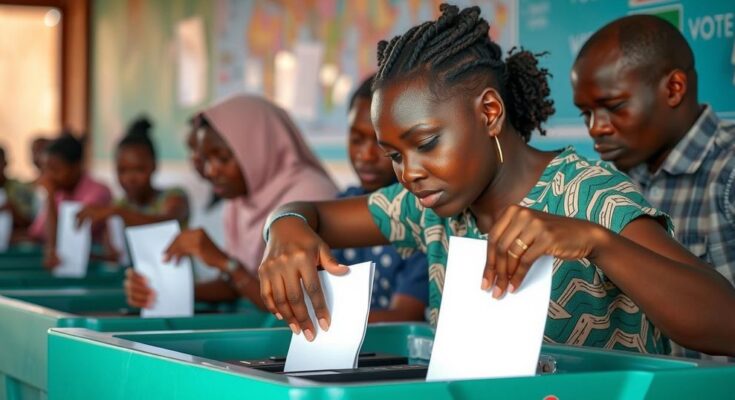In 2024, Southern Africa experienced significant electoral changes as long-governing liberation parties, like Botswana’s ruling party and South Africa’s ANC, faced serious declines due to a younger electorate prioritizing government performance over historical legacy. Protests erupted in Mozambique and Comoros following contentious elections, reflecting widespread youth discontent and the demand for responsive governance. Overall, these elections indicate a shifting political landscape in the region.
In 2024, the electoral landscape of Southern Africa underwent significant transformations, as long-standing liberation movements faced notable declines, indicating a shift in voter sentiment. Despite historical stability in this region, national elections unveiled a growing discontent among younger voters towards these parties, who were once revered for their roles in the liberation from colonial rule. Young constituents, increasingly indifferent to the legacy of the past, prioritized governmental performance over historical credentials, resulting in notable electoral losses for parties like the Botswana Democratic Party and the African National Congress.
In Botswana, the ruling party, after 58 years in power, was ousted in a landslide victory for the opposition amid economic challenges exacerbated by a global downturn. In South Africa, the ANC lost its majority, marking a significant milestone in post-apartheid politics, and in Namibia, SWAPO narrowly retained power amidst historic elections. Acknowledging the rising youth influence, analysts emphasized that generational change signifies a demand for accountability and job creation over historical narratives.
Additionally, elsewhere in the region, unrest erupted following elections that extended the incumbency of ruling parties, sparking protests and public debate about democracy’s effectiveness. The broader trend reflects a continent grappling with the aspirations and frustrations of its youthful population, indicating a potential political realignment both within Southern Africa and throughout the continent.
The 2024 elections in Southern Africa have starkly illustrated the transition away from long-dominant liberation movements, revealing the challenges these parties face in meeting the needs and expectations of a younger electorate. With a history of stability contrasting with the continent’s more tumultuous governance in other regions, Southern Africa has become a focal point for examining the evolving nature of political allegiance and voter priorities. Key elections, particularly in Botswana and South Africa, signal deeper questions regarding the relevance of historical political narratives in the face of contemporary issues such as economic hardship and youth unemployment, laying the groundwork for future political dynamics.
The recent elections in Southern Africa reflect a profound shift in political dynamics, driven by a younger electorate that prioritizes performance over legacy. This trend marks a significant moment in the region’s democratic evolution, where long-standing parties face immense pressure to adapt to contemporary societal demands. As generational change takes root, it indicates a potential reorientation of political power and signals that parties relying solely on historical sentiment may find themselves increasingly marginalized.
Original Source: abcnews.go.com




